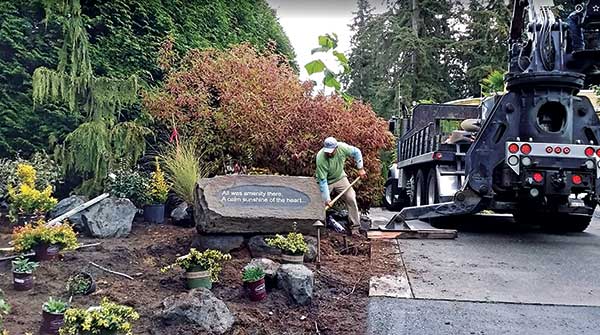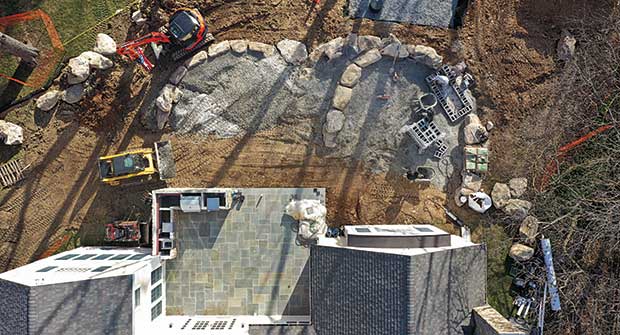A year of steady increased demand
Landscape companies are meeting pandemic-related production and operation challenges and finding new opportunities
By Abby Hart | LM Senior Editor
It’s been a common thread throughout 2020 for many landscape companies, according to this year’s Industry Pulse results — more people working from home has led to more business.
“It’s been nonstop — we’ve had a lot of referrals and a lot of new clients,” says Tom Pilon, owner of Perfect Earth Landscape in Louisville, Ky. The company provides design/build and maintenance services to a primarily high-end residential client base.

Pilon says keeping production on pace with demand has been a struggle, in addition to figuring out which potential clients are window shopping and which are serious about investing in a landscape project.
He adds that turning around estimates for clients has been tough. “The challenge has been efficiency — getting our customer service up to the right level and touching back with everybody,” he says.
To help manage the day-to-day operations, Pilon’s hoping to phase out QuickBooks software in 2021 and use a more sophisticated customer software.
“We have it built out really well, but it doesn’t provide us with a whole segment of daily operations use — work orders, routing, client communications — so we do a lot of double and triple work,” he says.
“It’s going to be a big learning curve and a slow process, but it’s something that needs to get implemented,” he adds.
Communication hurdles
Alan Burke, president and landscape architect for Classic Nursery & Landscape Co. in Woodinville, Wash., says communication has been an obstacle since the beginning of the pandemic.
Because of the person-to-person nature of the company and employees coming to work on staggered shifts for social distancing reasons, the internal communication has felt a bit disjointed.
“It makes it difficult to convey information to everyone all at once as we used to,” he says. “That makes it tougher to engender a company culture.”
Classic Nursery & Landscape Co., a $2.4 million company providing primarily residential design/build services, also includes a 10-acre nursery.
Burke expects the firm to beat its net profit goal for 2020. The company was shut down for six weeks in March and April, but since returning to work and adjusting to the virtual format of presenting to clients, it’s seen some upsides.
“We’ve been gratified to see how easy it’s been to have Zoom meetings, and I wish I’d done that earlier now,” Burke says.
Silver linings
Burke also points out another result of the pandemic: no noticeable busy or slow seasons.
“There’s really been no seasonality here — such as when kids go back to school or people go on vacation — so this has become a seamless time, and we didn’t see the ups and downs we normally see during the summer and fall,” Burke says, explaining that it’s made planning easier.
Keeping up with the increased demand over the entire year has meant creating some new processes, including Kanban, a workflow method used in the tech industry.
“For us, this means having a lean inventory, with everything clearly labeled and a process whereby we set up our projects as a series of tasks that move from a ‘to-do’ to a ‘doing’ to a ‘done’ type of Kanban category strategy,” Burke explains.
Six months ago, the company began using Asana, a free cloud-based software, so managers can track tasks as they move through the process. “Being able to know that the designer can track things online has led to an easing of production,” he says. “It’s been pretty revolutionary for us, and it’s easy to set up.”
In looking at the challenges over the past nine months, Burke says he’s reminded of the last economic crisis — the Great Recession of 2008-2009. During that time, the company went from 50 people to 17. “There was a time when I was laying off two or three people every Friday,” he recalls. “It was professionally and mentally debilitating.”
Luckily, he hasn’t had to lay people off this year, and he’s found an unexpected positive in the current situation. “The thing with this pandemic is I’m not worried like I was before — not just because we have so much business, but because the recession steeled me to understand that we can get through anything.”


